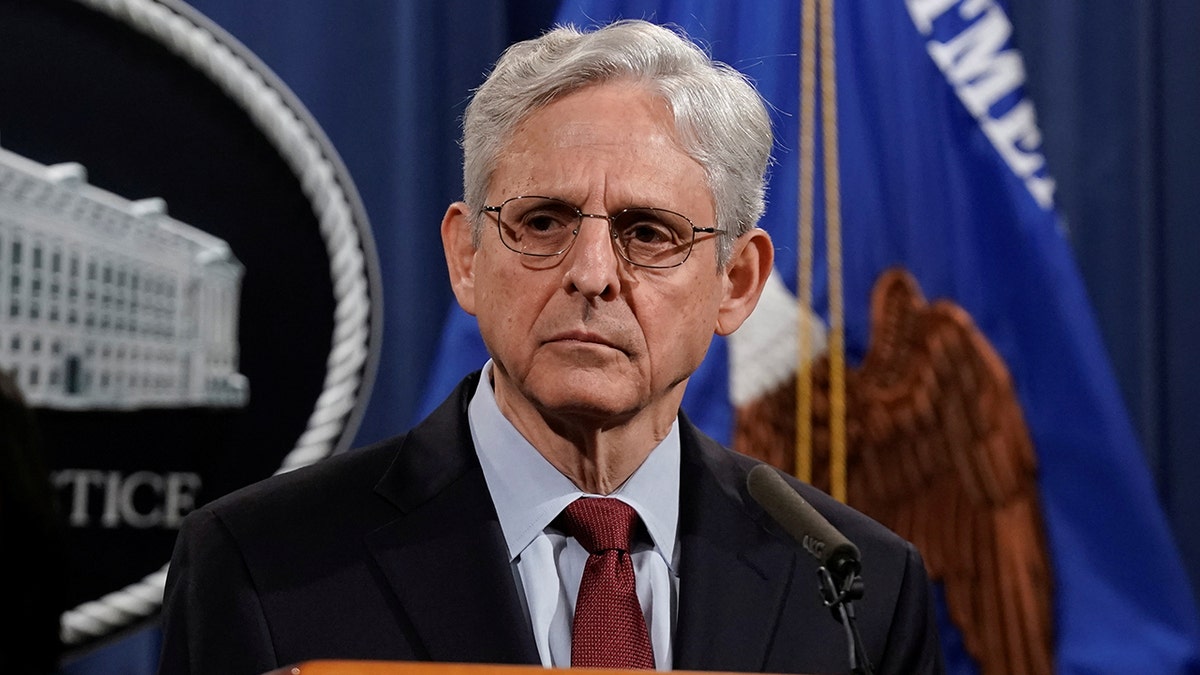Fox News Flash top headlines for September 13
Fox News Flash top headlines are here. Check out what's clicking on Foxnews.com.
Attorney General Merrick Garland announced Monday that the Justice Department will be taking a series of new actions regarding the monitoring of police departments, building on existing tools they use to get departments to comply with their standards.
Addressing the International Association of Chiefs of Police (IACP), Garland noted that the DOJ already conducts pattern-or-practice investigations of police departments, and utilizes consent decrees and monitorships to impose reforms. He then said that more is needed.
DEPARTMENT OF JUSTICE SUES TEXAS OVER ABORTION LAW: ‘CLEARLY UNCONSTITUTIONAL’
"Those investigations and the resulting settlements have led to significant improvements in police departments across the country. That, in turn, increases community trust, which is essential to making your difficult jobs safer and more effective," Garland said. "It is also no secret that the monitorships associated with some of those settlements have led to frustrations and concerns within the law enforcement community."
The attorney general said that after a review conducted by Associate Attorney General Vanita Gupta, which involved speaking with police chiefs and other leaders, she recommended – and Garland agreed to – 19 different actions with the stated goal of improving the "efficiency and efficacy" of consent decrees and monitorships.
Those actions include capping the fees monitors collect, limiting them to only serving on one monitoring at a time, setting terms that can only be renewed after a performance review, having set standards that monitors can apply everywhere, and requiring monitors to have "sustained and meaningful community engagement."
BIDEN VIOLATING HIS CAMPAIGN PLEDGE, ‘POLITICIZING’ DOJ TO DO HIS BIDDING, LEGAL EXPERTS WARN
Additionally, Garland said that they will make a greater effort to end consent decrees by requiring court hearings within five years to determine if police departments are complying with the new standards.
"To the extent that full compliance has not yet been achieved, departments will be invited to ask a court for partial termination and to use the hearing as an opportunity to make a plan for getting over the finish line," Garland said.

U.S. Attorney General Merrick Garland holds a news conference to announce that the Justice Department will file a lawsuit challenging a Georgia election law that imposes new limits on voting, at the Department of Justice in Washington, D.C., U.S., June 25, 2021. (REUTERS)
Consent decrees were used often by the Obama administration, such as in Ferguson, Missouri, following an investigation of local police after the death of Michael Brown. They were less common in the Trump administration, as then-Attorney General Jeff Sessions issued a November 2018 memo that narrowed their use. Still, the Trump DOJ entered into a consent decree with Baltimore in 2017 following the death of Freddie Gray, and with Chicago in 2019 following allegations that the city's police had a pattern of excessive force against Black and Latino people.
In April of this year, when announcing a probe of the Minneapolis police following George Floyd's death, Garland suggested consent decrees could be used again.
CLICK HERE TO GET THE FOX NEWS APP
In the past, such decrees have imposed standards that required police departments to make changes related to issues such as community policing, use of force and body cameras.
Garland said that Monday's announcement was in the spirit of showing "the transparent and collaborative way we are approaching our work." He told the police chiefs that "policing is an indispensable profession" and that the DOJ "cannot fulfill its public safety mission without you and without close collaboration with you."






